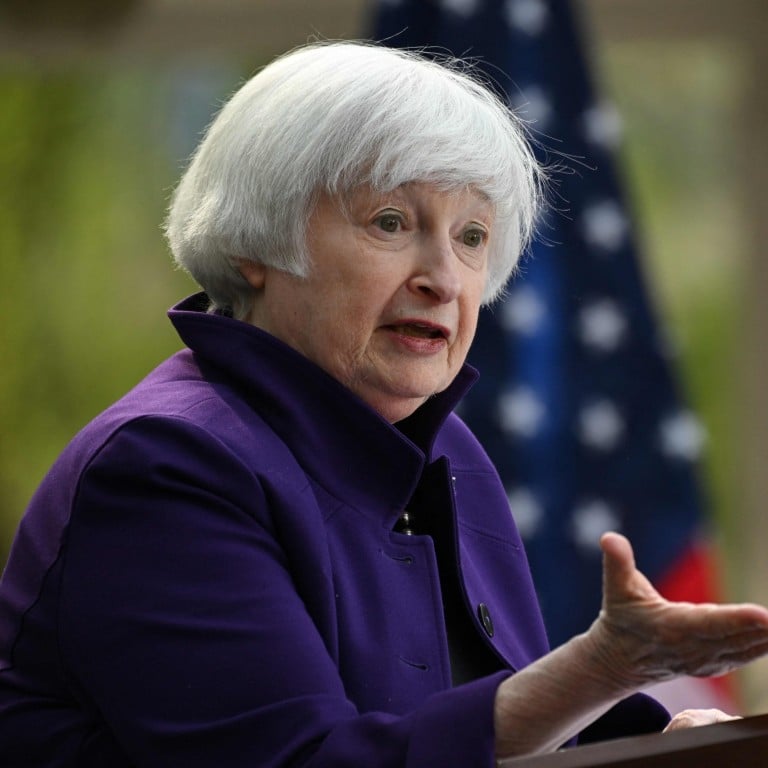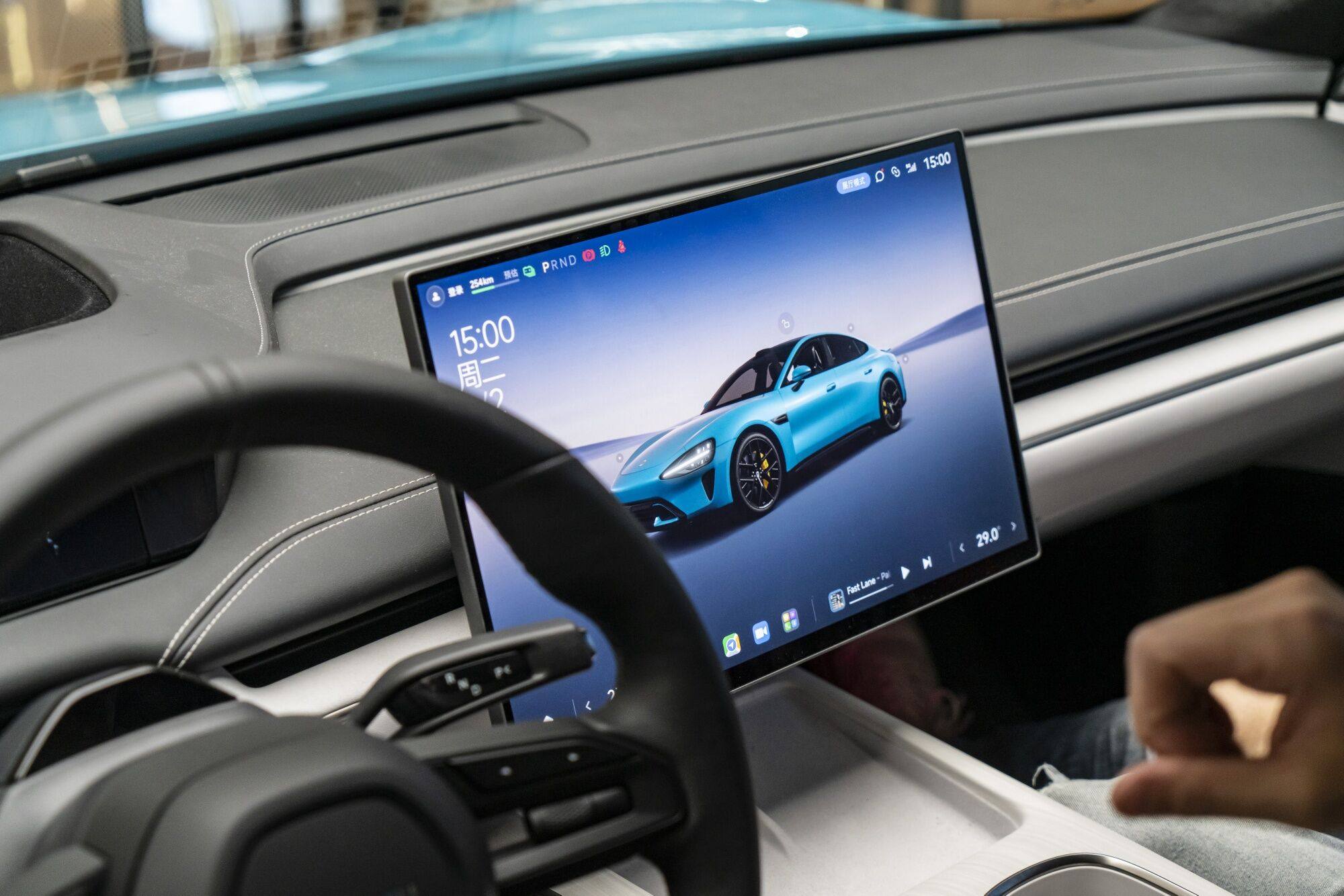
No imminent US sanctions on Chinese banks for their trade with Russia: Janet Yellen
- But American treasury secretary says the policy option is something Washington ‘would be prepared to use if necessary’
- Yellen’s remarks come as top US diplomat visits China and both sides scale up official contacts to keep relations from fraying
“I have nothing to announce in terms of sanctions [on Chinese banks],” Yellen stated during an interview with Reuters.
But the policy option was something the US “would be prepared to use if necessary”.
“We’ve had intensive discussions with the Chinese about this. I think they understand our position, and it is a tool that’s available,” she said.
US risks ‘gargantuan’ financial turmoil with threats against Chinese banks
“My responsibility is to emphasise the undesirable spillovers of excessive subsidies to everything in the clean-energy supply chain. And to make sure that that’s heard at the highest level,” she said in Thursday’s interview.
“We’re not trying to dominate the global market. We have no problem with China producing and selling globally and exporting,” she continued.
“But the United States and Europe and other countries also want to have some involvement in the ability to produce clean-energy products that are going to be of great importance.”

In the past decade, China has grown into the biggest player in the global new-energy industrial chain, helped by policy support, heavy government subsidies and the world’s most complete manufacturing infrastructure network.
As a result, the country’s perceived monopoly of the sector has evoked some backlash.
How far did Janet Yellen’s trip move the ball for US-China relations?
“This is a problem that developed over many years. It’s not going to be solved in a day or a week,” Yellen said.
“So it’s important that China recognises the concerns and begins to act to address them. But we don’t want our industry wiped out in the meantime, so I wouldn’t want to take anything off the table.”
“And that really ended up with the huge loss of good manufacturing jobs in parts of the country that have really never seen employment recover,” she added.
“I’ve been in favour of free trade. But it has to be something that broadly benefits people throughout the country.”
On Thursday, He Yadong, spokesman for China’s commerce ministry, told a press conference in Beijing that Western “hype” over China’s overcapacity was “unreasonable” and that the country firmly opposed it.
“The issue of production capacity must be based on the background of economic globalisation, fully consider the reality of the global division of labour and the international market and uphold an objective, fair and scientific stance,” He said.
In the new energy sector, there was no overcapacity, he added, but rather a shortage of capacity from a global perspective, with China providing affordable, high-quality products for the world’s green development.
“Relevant countries and regions cannot hold high the banner of green development while wielding the big stick of protectionism,” said He. “This is a typical contradiction and double standard.”

